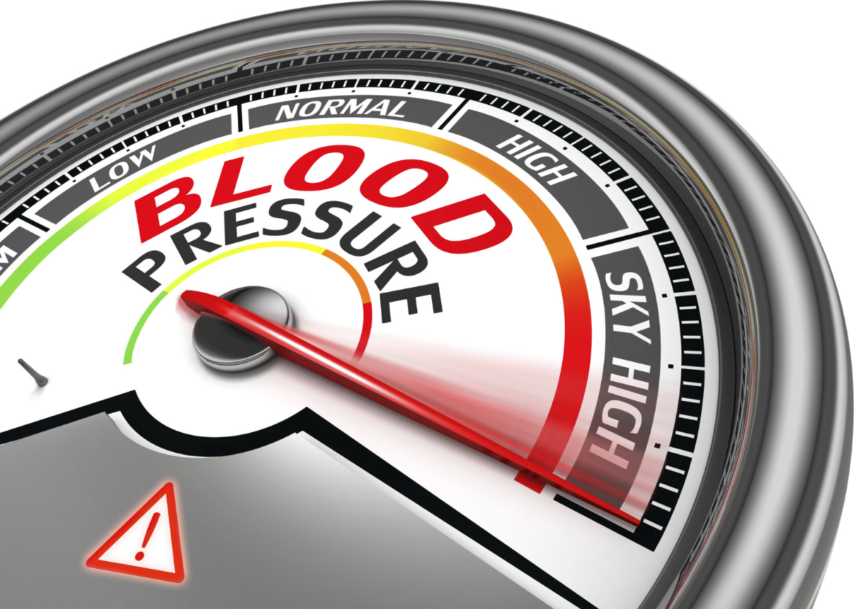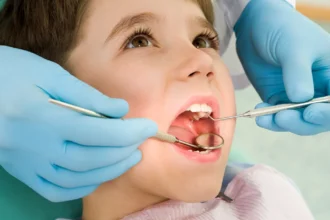High blood pressure occurs when the pressure of blood flow through the body’s veins and arteries increases beyond normal levels. Approximately half of the adult population in the U.S. now has high blood pressure or hypertension. Yet, many of these individuals are not aware that they have this condition. If left untreated, hypertension can be quite serious, leading to heart attacks, strokes, and other conditions.
- Myth 1: High blood pressure is only a problem for the elderly.
- Myth 2: It’s normal to have high blood pressure as you get older.
- Myth 3: High blood pressure always shows symptoms.
- Myth 4: You can stop taking medication once your blood pressure is under control.
- Myth 5: Salt intake is the only dietary factor.
- Conclusion
Normal blood pressure measurements equal 120 systolic counts over 80 diastolic (120/80 mmHg). If you, a family member, or a friend have blood pressure readings that are higher on a regular basis, you may have hypertension. To protect your health, you should see your primary physician for a checkup.
Myth 1: High blood pressure is only a problem for the elderly.
It is true that the risk of developing high blood pressure increases as people grow older. In fact, three in every four Americans aged 75 and above currently have hypertension. Yet, a greater number of young people have high blood pressure today than 20 or even 30 years ago. Children, as well as teenagers, are often overweight and may develop type two diabetes, which can also occur before the onset of high blood pressure.
Myth 2: It’s normal to have high blood pressure as you get older.
Medical professionals know that your chances of developing hypertension do increase as you grow older. Yet, it is not normal to have this condition simply because you are older. One major concern, however, that older people who develop hypertension face is that having hypertension can make them vulnerable to other health problems. Since elevated blood pressure makes your heart work harder, this can cause worrisome chest pains.
It can also result in serious health threats like heart attack, peripheral artery disease, stroke, or heart failure. Patients with hypertension are also susceptible to developing vascular dementia. According to cardiologist Dr. Antonio Giaimo at Yale Medicine, “The thought is that high blood pressure contributes to blockages in small blood vessels of the brain, injuring it. That, over time, can lead to dementia.”
Myth 3: High blood pressure always shows symptoms.
Hypertension typically develops gradually with no symptoms. Many people think that they can only have a health condition if they experience symptoms. For this reason, high blood pressure may go undetected in some young patients when it should be treated. More children are now being diagnosed with this condition. It is often caused by obesity, eating mainly processed foods, and diets high in fats and sugar.
Yet, eating healthy foods, reducing alcohol consumption, getting enough sleep, and refraining from smoking can often improve hypertension. Following these practices regularly can also help prevent the onset of elevated blood pressure.
Engaging in cardiovascular exercise regularly can also help lower blood pressure. This type of exercise raises your heart rate, which is healthy for all of the body’s organs, muscles, and systems. It also promotes relaxation after exercise while reducing stress. Dr. Giaimo and other experts also endorse walking as a good starting point. Even elderly people with reasonably good mobility can benefit from walking some each day or frequently.
Recommended forms of cardiovascular exercise for younger people include running, biking, sports games, swimming, aerobics, and dancing. Time spent at the gym on the treadmill, rower, and other exercise machines is also recommended. Even hypertension patients who take prescribed medication can improve their treatment results by exercising regularly.
Medications Often Prescribed to Treat High Blood Pressure
The usual medications that medical doctors prescribe to treat patients with hypertension include the following:
• Diuretics: These medications lower bodily levels of salt and water as well as fluid in arteries and blood vessels. In this way, they reduce blood pressure counts. They are the most frequently prescribed medicines for treating hypertension.
• Calcium channel blockers: These medicines relax blood vessels while also dilating them, reducing blood pressure.
• Angiotensin-converting enzyme (ACE) inhibitors and angiotensin receptor blockers (ARB): These medications lower blood pressure by blocking a maladaptive normal bodily hormone pathway.
Myth 4: You can stop taking medication once your blood pressure is under control.
Some people think that high blood pressure is a medical ailment that requires only short-term treatment. They assume that patients will be cured of hypertension after taking prescribed medication for a week or two. Others may think that if they develop hypertension, changing their diet will eliminate the problem within a few weeks.
Yet, years of research, patient treatment, and testing have proven these assumptions to be wrong. Eating healthy foods, reducing alcohol consumption, getting enough sleep, and refraining from smoking can often improve hypertension. Following these practices regularly can also help prevent the onset of elevated blood pressure.
Engaging in cardiovascular exercise regularly can also help lower blood pressure. This type of exercise raises your heart rate, which is healthy for all the organs, muscles, and systems of the body. It also promotes relaxation after exercise while reducing stress. Dr. Giaimo and other experts also endorse walking as a good starting point. Even elderly people with reasonably good mobility can benefit from walking some each day or frequently.
Recommended forms of cardiovascular exercise for younger people include running, biking, sports games, swimming, aerobics, and dancing. Time spent at the gym on the treadmill, rower, and other exercise machines is also recommended. Even hypertension patients who take prescribed medication can improve their results from hypertension treatment by exercising regularly.
Myth 5: Salt intake is the only dietary factor.
Most health and nutritional experts recommend limiting your daily intake of sodium to 1,500 to 2,300 mg. if you have hypertension. In addition, you should eat a healthy diet that includes protein, whole grains, fruits, vegetables, and low-fat dairy foods. Try to avoid processed food products when possible.
HGH Injections for Sale: Innovative and Effective Hypertension Treatment
HGH injections can effectively boost heart function and control blood pressure levels. It is a healthy and safe alternative to traditional hypertension medications when taken under the careful supervision of a qualified healthcare professional. Overseen by experienced practitioners, the use of GH therapy injections can improve your blood pressure counts significantly. You can order HGH injections online.
The effects of HGH on lowering blood pressure were studied in a controlled study conducted by the National Institute of Health (NIH). After GH therapy injections, the systolic counts of the control subjects (without HGH deficiency) did not significantly change. Yet, the subjects with HGH deficiency showed definite reductions in their systolic levels.
During the study, the blood pressure counts of all participants were carefully monitored. In addition, all subjects took a treadmill test and had an echographic analysis.
When overseen by qualified healthcare professionals, HGH injections are safe and effective in treating hypertension. High-caliber GH therapy injections administered safely and correctly also enable patients to avoid the annoying side effects of some blood pressure medications. These side effects can include dizziness, upset stomach, headache, and swelling of the legs and feet.
Conclusion
When monitored by experienced healthcare providers, Human Growth Hormone therapy is a safe and effective treatment for high blood pressure. Healthcare professionals and sellers of GH therapy injections for adult hypertension treatment are not promoting the use of HGH for:
• Bodybuilding,
• Child Growth Hormone Deficiency, or
• Experimentation Purposes.
Instead, they offer the opportunity to order HGH injections for therapy to lower high blood pressure in adult patients with HGH deficiency. They offer HGH injections for sale online. All patients must qualify for these injections by taking a blood test and obtaining a prescription from a qualified healthcare practitioner. Contact an experienced, expert provider of HGH therapy for hypertension in your locale for more information and treatment today.













